Recycling
Recycling
The Importance of Recycling for a Sustainable Future
Climate change is having an impact on all aspects of the planet. Therefore, it’s more important than ever before that we all make a conscious effort to minimise air and water pollution, reduce greenhouse gases, and conserve natural resources.
A key part of this is recycling, which helps to reduce the flow of rubbish ending up in landfill, the oceans, and our environment.
Recycling is the process of converting waste materials that we would usually dispose of and converting them into new materials and objects. Recycling waste minimises the number of harmful materials produced and reduces energy usage, so it’s vital that we all improve our recycling habits to help protect our planet for future generations.
However, despite our best intentions, knowing what you can and can’t recycle can be challenging and many people simply don’t recycle as they find the process incredibly confusing and don’t want to recycle the wrong things in the wrong way. In fact, the rate of recycling in the UK is currently around 45%, significantly lower than the government’s target of reaching 65% by 2035.
The good news is, once you understand what you can and cannot recycle, it’s easy to factor recycling into your daily routine and play your part in helping to save the planet!
We’ve created this helpful guide outlining everything that you need to know about recycling, and what you can and can’t recycle.
The Importance of Recycling for a Sustainable Future
Climate change is having an impact on all aspects of the planet. Therefore, it’s more important than ever before that we all make a conscious effort to minimise air and water pollution, reduce greenhouse gases, and conserve natural resources.
A key part of this is recycling, which helps to reduce the flow of rubbish ending up in landfill, the oceans, and our environment.
Recycling is the process of converting waste materials that we would usually dispose of and converting them into new materials and objects. Recycling waste minimises the number of harmful materials produced and reduces energy usage, so it’s vital that we all improve our recycling habits to help protect our planet for future generations.
However, despite our best intentions, knowing what you can and can’t recycle can be challenging and many people simply don’t recycle as they find the process incredibly confusing and don’t want to recycle the wrong things in the wrong way. In fact, the rate of recycling in the UK is currently around 45%, significantly lower than the government’s target of reaching 65% by 2035.
The good news is, once you understand what you can and cannot recycle, it’s easy to factor recycling into your daily routine and play your part in helping to save the planet!
We’ve created this helpful guide outlining everything that you need to know about recycling, and what you can and can’t recycle.
What Are the Three Basic Rules of Recycling?
If you find recycling confusing, following these three basic rules of recycling should help ensure you recycle as much as possible, and as efficiently as possible.

1
1
Clean material
Always recycle clean bottles, cans, paper, and cardboard
2
2
Plastic bags
Don’t put loose plastic bags or bagged recyclables in your recycling
3
3
Food waste
Make sure you exclude any food waste and liquids in your recyclingWhy Should You Recycle?
We are all responsible for helping to save the planet and even the smallest changes can make a big impact.
Here are some of the reasons why you should be recycling as much of your household waste as possible:
- Recycling reduces the amount of waste that ends up in landfill and reduces the amount of waste that is sent to incinerators.
- When you recycle, you’re playing your part in helping to minimise the detrimental impact pollution has on our planet, meaning fewer forests are cut down and there is less pollution of our water, soil, and air.
- Recycling is also a great way to conserve finite natural resources. This, in turn, reduces the need to extract raw materials from the earth or grow and harvest new materials.
- Recycling helps to save energy as making products from recycled materials uses less energy than making new ones. The difference in energy used can be significant.
There are also economic benefits to recycling, such as job generation, and it is significantly cheaper for councils and businesses to dispose of recycled waste than general waste, saving money that can be spent on other services.
Why Should You Recycle?
We are all responsible for helping to save the planet and even the smallest changes can make a big impact.
Here are some of the reasons why you should be recycling as much of your household waste as possible:
- Recycling reduces the amount of waste that ends up in landfill and reduces the amount of waste that is sent to incinerators.
- When you recycle, you’re playing your part in helping to minimise the detrimental impact pollution has on our planet, meaning fewer forests are cut down and there is less pollution of our water, soil, and air.
- Recycling is also a great way to conserve finite natural resources. This, in turn, reduces the need to extract raw materials from the earth or grow and harvest new materials.
- Recycling helps to save energy as making products from recycled materials uses less energy than making new ones. The difference in energy used can be significant.
There are also economic benefits to recycling, such as job generation, and it is significantly cheaper for councils and businesses to dispose of recycled waste than general waste, saving money that can be spent on other services.
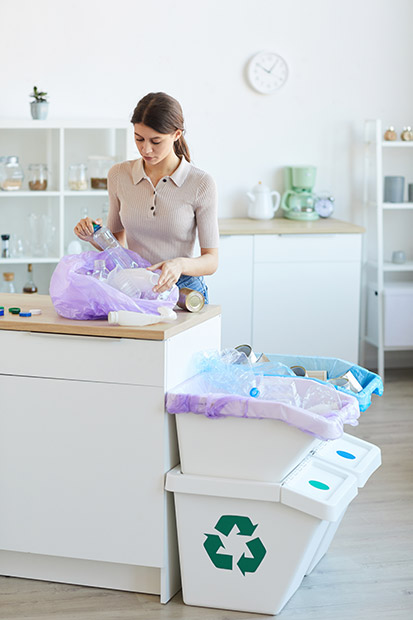
Why Is It Important To Separate Your Recycling?
Although it might feel like a time-consuming task, if you want to recycle efficiently, it’s important that you separate your waste properly. Waste sorting ensures that different types of waste do not contaminate each other, causing problems further down the line.
Most waste can be separated into the following categories:
- Glass
- Paper and cardboard
- Aluminium
- Hazardous materials
- Clothing
- Kitchen waste
- Plastic
When separating your waste, you should also check the packaging to ensure that the whole item is recyclable. Some products are only partially recyclable, meaning you will need to separate the different parts.
Why Is It Important To Separate Your Recycling?

Although it might feel like a time-consuming task, if you want to recycle efficiently, it’s important that you separate your waste properly. Waste sorting ensures that different types of waste do not contaminate each other, causing problems further down the line.
Most waste can be separated into the following categories:
- Glass
- Paper and cardboard
- Aluminium
- Hazardous materials
- Clothing
- Kitchen waste
- Plastic
When separating your waste, you should also check the packaging to ensure that the whole item is recyclable. Some products are only partially recyclable, meaning you will need to separate the different parts.
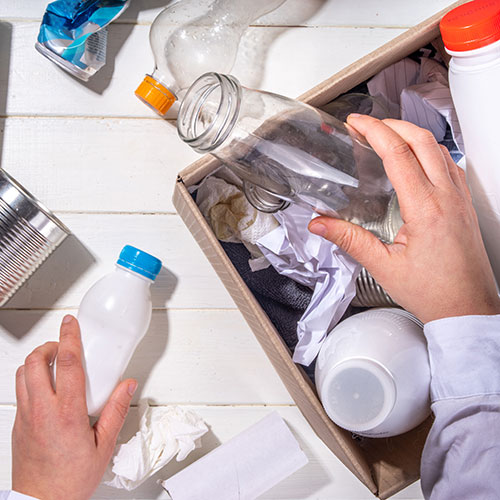
What Can You Recycle?
In theory, almost anything can be recycled. However, recycling plants and councils don’t accept all materials, simply because it isn’t always effective or economical to do so.
Common household items that can be recycled include:
- Plastic bottles
- Foil (check with your local council)
- Cardboard
- Drinks cans
- Clothes
- Paper
- Food and beverage containers
- Glass bottles and jars
What Can You Recycle?

In theory, almost anything can be recycled. However, recycling plants and councils don’t accept all materials, simply because it isn’t always effective or economical to do so.
Common household items that can be recycled include:
- Plastic bottles
- Foil (check with your local council)
- Cardboard
- Drinks cans
- Clothes
- Paper
- Food and beverage containers
- Glass bottles and jars
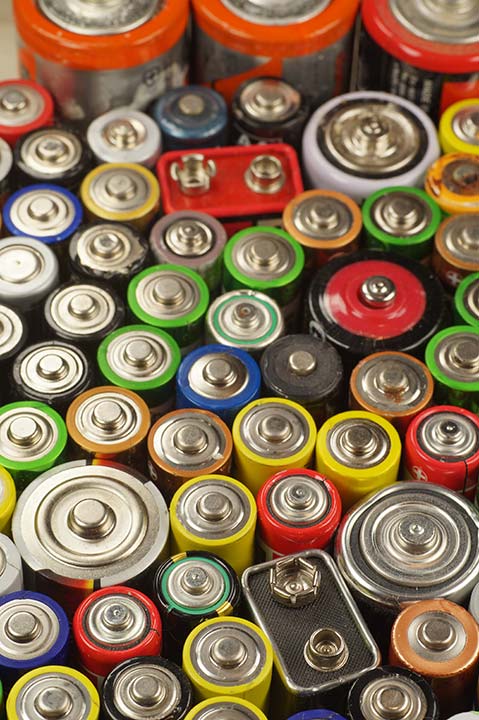
What Can’t You Recycle?
To prevent issues with contamination, you should also be aware of what you can’t recycle.
Here are some of the day-to-day items you should typically avoid putting in your recycling bin:
- Toothpaste and other squeezable tubes
- Pyrex dishes
- Crisp packets
- Plastic sleeves on drinks bottles
- Cotton wool and make-up removal pads
- Batteries, including lithium-ion batteries
- Clingfilm
- Nappies
- Electronics
- Food & food soiled recyclables
- Broken glass
- Lightbulbs.
Putting things that can’t be recycled into your recycling bin can increase the time and cost involved in recycling, or even ruin other good quality recycling materials.
What Can’t You Recycle?

To prevent issues with contamination, you should also be aware of what you can’t recycle.
Here are some of the day-to-day items you should typically avoid putting in your recycling bin:
- Toothpaste and other squeezable tubes
- Pyrex dishes
- Crisp packets
- Plastic sleeves on drinks bottles
- Cotton wool and make-up removal pads
- Batteries, including lithium-ion batteries
- Clingfilm
- Nappies
- Electronics
- Food & food soiled recyclables
- Broken glass
- Lightbulbs.
Putting things that can’t be recycled into your recycling bin can increase the time and cost involved in recycling, or even ruin other good quality recycling materials.
What Happens to Recycling After Collection?
After collection, recyclable objects are taken to a sorting facility where they are loaded onto a conveyor belt for sorting. Sorting facilities have state-of-the-art technology to help them effectively separate the materials. Once this has been done the items are then turned into recyclables for re-sale.
What Happens to Recycling After Collection?
After collection, recyclable objects are taken to a sorting facility where they are loaded onto a conveyor belt for sorting. Sorting facilities have state-of-the-art technology to help them effectively separate the materials. Once this has been done the items are then turned into recyclables for re-sale.
What Is the Circular Economy in Recycling?
A circular economy is an industrial system that is regenerative by both intention and design.
In recycling, the circular economy is all about how we can design waste out of products and processes, how we can keep products and materials in use, and how we can preserve and enhance renewable resources.
Here at HIPPO Waste, we provide a range of HIPPOBAGs, Skip Hire and Man & Van services that have been designed to offer convenient, cost-effective, responsible, and reliable options for waste disposal that works for you.
What Is the Circular Economy in Recycling?
A circular economy is an industrial system that is regenerative by both intention and design.
In recycling, the circular economy is all about how we can design waste out of products and processes, how we can keep products and materials in use, and how we can preserve and enhance renewable resources.
Here at HIPPO Waste, we provide a range of HIPPOBAGs, Skip Hire and Man & Van services that have been designed to offer convenient, cost-effective, responsible, and reliable options for waste disposal that works for you.
Recycling Targets at HIPPO
We care about the environment and want to ensure we can love and enjoy it for years to come. For that reason, we are proud to state that we recycle and divert over 95% of all waste collected from landfill.
Our ongoing efforts are focused on maintaining and enhancing our recycling initiatives for the betterment of the environment.
Recycling Targets at HIPPO
We care about the environment and want to ensure we can love and enjoy it for years to come. For that reason, we are proud to state that we recycle and divert over 95% of all waste collected from landfill.
Our ongoing efforts are focused on maintaining and enhancing our recycling initiatives for the betterment of the environment.
FAQs
How should I prepare items for recycling?
Rinse and clean food containers, remove labels and lids, flatten cardboard boxes, and sort materials according to your local council's guidelines. This helps ensure the recycling process is efficient and contamination-free.
Can I recycle plastic bags and other soft plastics?
Generally, soft plastics like plastic bags, cling film, and bubble wrap are not accepted in household recycling bins. Some supermarkets provide dedicated collection points for plastic bags and soft plastics. Always check with your local council for specific guidelines.
What is the difference between 'reuse' and 'recycling'?
Reuse refers to using an item multiple times without changing its form, while recycling involves processing materials to create new products. Reusing items is often considered more sustainable than recycling, as it requires less energy and resources.
How can I find my nearest recycling centre?
Visit your local council's website for information on recycling centres and collection points in your area. Alternatively, search online using a recycling centre locator tool.
Can I recycle electronic waste (e-waste)?
Yes, e-waste can be recycled, but it needs to be handled separately from regular household recycling. Visit your local council's website for information on e-waste collection points or drop-off centres.
Can I recycle batteries and light bulbs?
Batteries and light bulbs should not be placed in your household recycling bin. Many retailers and local council facilities offer dedicated collection points for these items. Always consult your local council's guidelines for proper disposal.
FAQs
How should I prepare items for recycling?
Rinse and clean food containers, remove labels and lids, flatten cardboard boxes, and sort materials according to your local council's guidelines. This helps ensure the recycling process is efficient and contamination-free.
Can I recycle plastic bags and other soft plastics?
Generally, soft plastics like plastic bags, cling film, and bubble wrap are not accepted in household recycling bins. Some supermarkets provide dedicated collection points for plastic bags and soft plastics. Always check with your local council for specific guidelines.
What is the difference between 'reuse' and 'recycling'?
Reuse refers to using an item multiple times without changing its form, while recycling involves processing materials to create new products. Reusing items is often considered more sustainable than recycling, as it requires less energy and resources.
How can I find my nearest recycling centre?
Visit your local council's website for information on recycling centres and collection points in your area. Alternatively, search online using a recycling centre locator tool.
Can I recycle electronic waste (e-waste)?
Yes, e-waste can be recycled, but it needs to be handled separately from regular household recycling. Visit your local council's website for information on e-waste collection points or drop-off centres.
Can I recycle batteries and light bulbs?
Batteries and light bulbs should not be placed in your household recycling bin. Many retailers and local council facilities offer dedicated collection points for these items. Always consult your local council's guidelines for proper disposal.
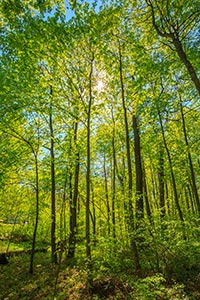
Sustainability
Curious about how we're putting the environment first? Click through to our Sustainability Page and explore the many ways HIPPO is dedicated to eco-friendly waste management, reducing our carbon footprint, and supporting a cleaner, greener world for future generations.
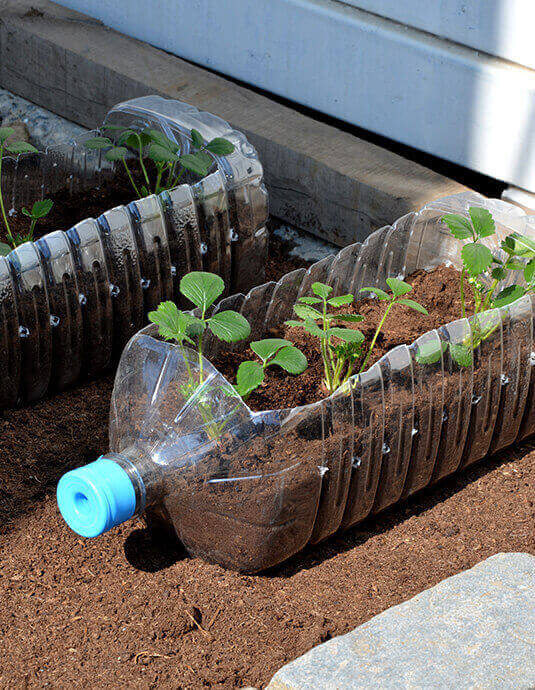
Reduce and Reuse
Did you know that reducing and reusing are just as important as recycling in creating a sustainable future? By consuming less and finding new uses for old items, we can minimise waste and preserve our planet's resources
